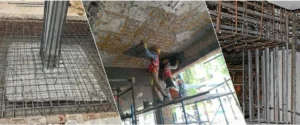
Windows are not only there to let in sunlight; they are also necessary for making your home comfortable and secure. However, they can become damaged with time, whether due to accidents, weather, or simply aging. Now you might be wondering, “Do I need a complete replacement, or will a repair suffice?” That’s a reasonable question, and the answer is based on a few simple factors. If you have shattered glass or a foggy window in Florida, window repair Kissimmee providers may be worth calling before committing to something more expensive.
Small Cracks or Chips? Repairs Might Be Enough
If the damage is modest, such as a little crack or chip that hasn’t spread, a repair is usually appropriate. These flaws are mostly cosmetic in nature and have no bearing on the window’s strength or energy efficiency. In fact, taking immediate action can keep matters from growing worse. Waiting too long, however, can cause fractures to develop, particularly in places with temperature fluctuations.
Foggy Glass with Moisture Between Panes
When the seal on a double-pane window fails, moisture can become trapped between the panes. This gives them a foggy appearance that never seems to go away. Professionals can sometimes remove the fog and reseal the window. However, not all windows respond well to this approach. If the seal is entirely broken, replacing the glass insert might be a better option than replacing the entire frame.
Window Frames Tell Their Own Story
It’s not all about the glass. Look at the frame. If it’s deformed, squishy, or cracked, the problem could be deeper. Wood frames that show evidence of rot or water damage rarely hold up well following repairs. Aluminum or vinyl frames that are deformed or cracked may not be able to support new glass installations. That’s when a thorough replacement becomes more logical than attempting to patch things up.
Drafts and Poor Insulation
You feel a breeze even when the window is closed? That’s a sign the window has lost its seal, or the frame no longer fits properly. Drafty windows make your heating and cooling systems work harder, raising energy bills. Sealing gaps can help, but that’s often temporary. When your comfort’s affected every day, replacing the window brings long-term relief.
Hardware Problems: Not Always a Deal Breaker
Stuck window? Broken latch? Loose handle? These sound like big issues but often aren’t. Window hardware can wear out, especially with frequent use, but the parts are usually replaceable. If the frame and glass are in good shape, replacing a few mechanical components can bring things back to working order without the need to install a whole new unit.
Age Isn’t Just a Number
Older windows come with older problems. Materials degrade, designs go out of style, and technology improves. If your window is decades old, it might not just be about damage—it could be about performance. Single-pane windows, in particular, are less energy-efficient and harder to maintain. In many cases, replacing older windows improves comfort and saves money over time.
Safety and Security Concerns
A window that won’t lock or close fully isn’t just a nuisance—it’s a risk. Whether it’s from damage or poor alignment, anything that affects the security of your home should be taken seriously. Small repairs might fix alignment issues, but cracked frames or damaged locking mechanisms sometimes require a new window to restore full protection.
Style and Aesthetic Considerations
Sometimes, the decision to replace isn’t about damage at all. Maybe you’ve renovated your space or updated your exterior, and now those old windows just don’t fit the look. While cosmetic damage like peeling paint can be fixed, mismatched or outdated styles are harder to change without replacement. A fresh window can complete the look without needing more touch-ups later.
Cost Comparison: Repair vs. Replacement
Money matters. Repairs are generally less expensive in the near term, particularly when the damage is minor. However, continual maintenance or frequent fixes can quickly add up. Replacements are more expensive up front, but they typically result in superior insulation, cheaper energy bills, and fewer problems down the line. Consider it a trade-off between short-term convenience and long-term comfort.
Environmental Considerations
Glass and window materials take energy and resources to produce. Repairing a window instead of replacing it can reduce waste. But on the flip side, older windows may not meet modern energy efficiency standards, meaning they use more resources over time. A new energy-efficient window can actually help lower your carbon footprint in the long run.
Listen to the Pros
While knowing the warning flags is beneficial, a professional examination can provide additional clarity. Experts can immediately determine whether your window is damaged at the surface or structural level. They’ll also help you estimate the prices of both repair and replacement, allowing you to make an informed decision with no surprises.
Final Thought:
Sometimes windows give clear indications of what they require. A little chip says “repair me,” whereas a bent frame or persistent fog may be saying “replace me.” Take your time, analyze your options, and don’t rush to make a decision. When you take a closer look, you’ll know if it’s a quick fix or a complete replacement.

